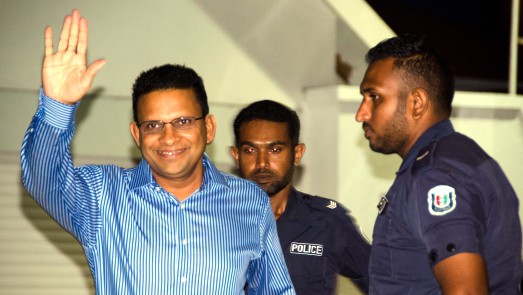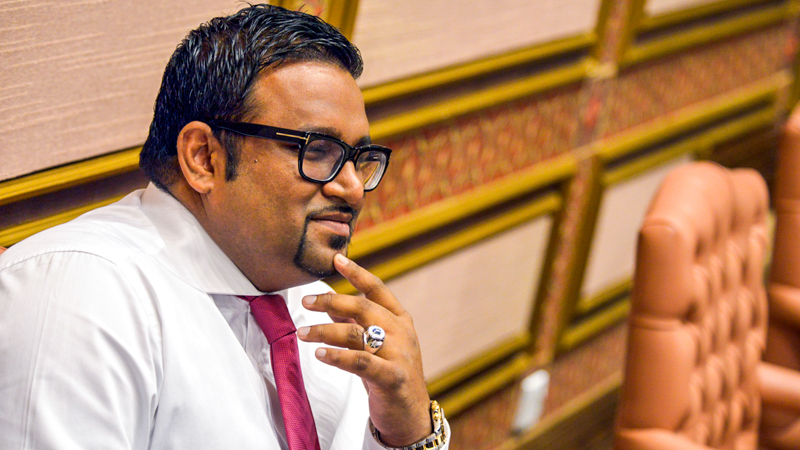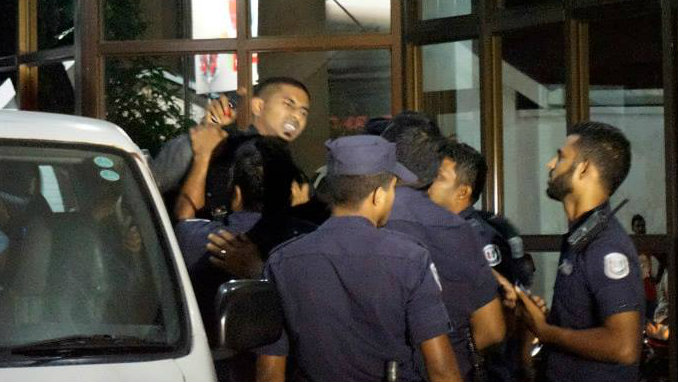The government is seeking legal changes to allow the extension of resort leases to 99 years for a lump sum of US $5m, and to expand the powers of the tourism ministry.
The lease extension scheme, which would represent the first time they have been lengthened beyond 50 years, aims to raise money for the government.
The bill submitted by government-aligned MP Mohamed Ismail would also transfer to the tourism ministry the power to authorise developments at resorts and conduct environmental assessments.
The changes aim to incentivise investors, make it easier to obtain financing from international institutions, and increase revenue for the government, the proposed law states.
To be eligible for a lease extension, a resort property must be operational with an existing lease period of 50 years and must not owe money to the government.
If the amendments pass, resorts will have to seek authorisation from the tourism ministry for any development on a resort that could “permanently alter” the island, plot of land, or lagoon’s environment. The ministry must compile an environmental impact assessment before issuing permission.
“Making the services available under one roof would ease the burden on investors, speed up services, and improve investor confidence,” the introduction to the legislation says.
Under existing laws, the Environment Protection Agency conducts assessments and authorises projects such as land reclamation. The agency functions under the environment ministry.
However, the new amendments state that “only the tourism ministry will have the authority” to conduct assessments and authorise developments.
The tourism ministry will also have the power to impose fines not exceeding US$5 million for violations.
The introduction says that the involvement of other ministries and institutions in resorts hinders the tourism ministry and “lowers investor confidence”.
“Flip-flopping”
Under the current Tourism Act, the maximum lease period for resorts or hotels is 50 years. However, the constitution allows leases up to 99 years.
Former Economic Development Minister Mahmoud Razee told Minivan News today that from “a commercial investment point of view it’s a good move,” but questioned the government’s “sincerity”.
“Because when they were in opposition they made a big hoohaa about it,” he said, with reference to current ruling party MPs protesting against the then-Maldivian Democratic Party (MDP) government’s plans to extend resort leases from 25 to 50 years.
The move shows the government is trying to make up revenue shortfalls, said Razee, who was part of the MDP government. He said the current administration was “not curtailing expenses” but increasing the number of political appointees.
This year’s record MVR24.3 billion (US$1.5 billion) state budget includes MVR3.4 billion (US$220 million) anticipated from new revenue raising measures.
The measures include revisions of import duty rates, the introduction of a “green tax”, acquisition fees from investments in special economic zones, and leasing 10 islands for resort development.
Razee also suggested that the administration might allow resorts to pay the extension fee in instalments if the tourism industry lobbies the government.
When the MDP government offered extension of leases for 50 years in exchange for an upfront fee, Razee said resort owners were “not so eager” and “relatively few” paid the fees.
In January 2014, Maldives Association of Tourism Industry secretary general Ahmed Nazeer questioned the practicality of collecting resort lease extensions in a lump sum.
Nazeer told a parliamentary committee reviewing revenue raising measures that only 17 out of the more than 100 resorts had paid lease extension fees upfront.
Razee meanwhile criticised the government’s “flip-flopping” on economic policy, referring to its reversal of a decision to impose higher import duties on garments and motorcycles.
He noted that customs authorities are promising to reimburse importers who are paying the higher tariffs that came into force on April 1, even before amendments reversing the hikes have been passed.
In December, the government also reversed a decision to impose a 10 percent import duty on staple foodstuff such as rice, flour, wheat and sugar.
“There’s no clear-cut, defined, long-term policy,” Razee said.
Likes (3)Dislikes
(3)Dislikes (0)
(0) 




